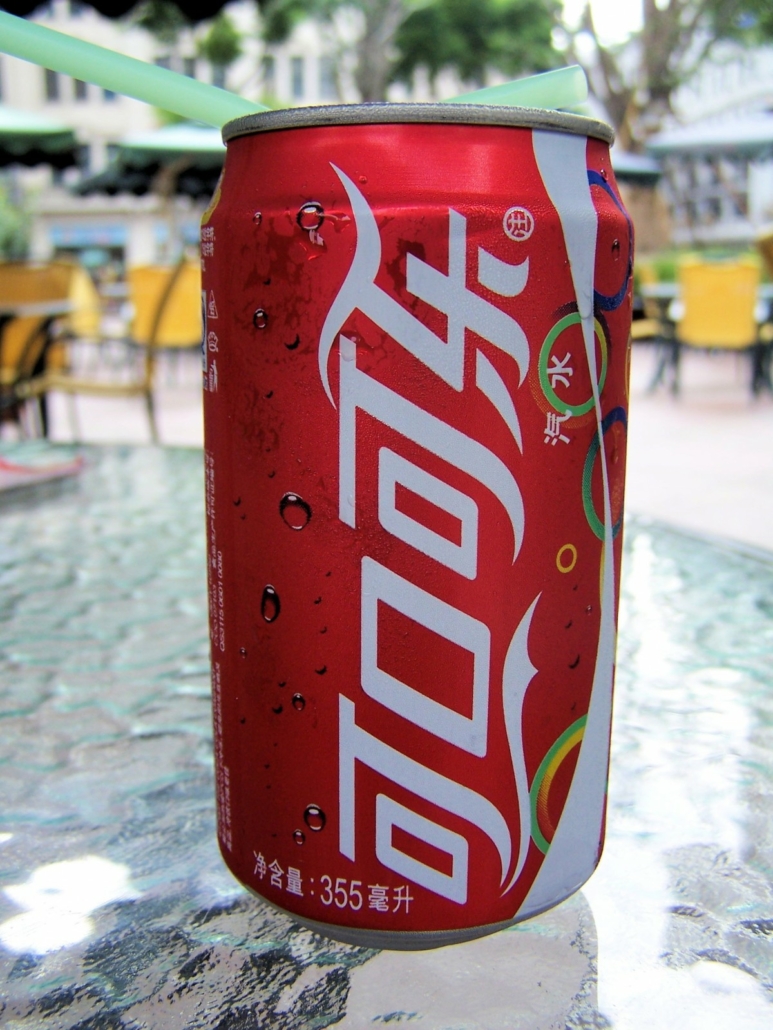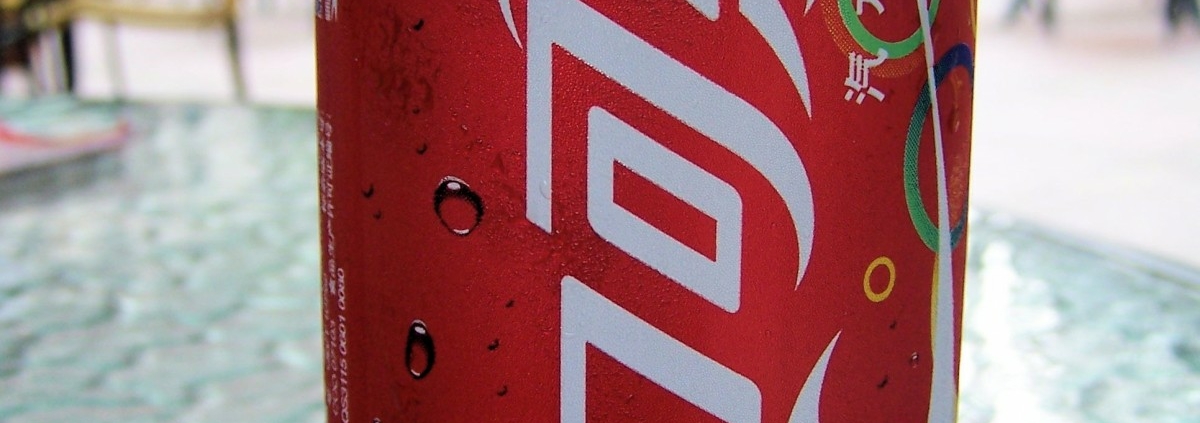Coke Needs to Confront China’s Human Rights Abuses Ahead of the Beijing Olympics

Next month, China will host the Winter Olympics in Beijing, the most ill-advised venue for the games since Adolf Hitler brought the 1936 Olympics to Berlin. Even as China has become one of the world’s largest economies, President Xi Jinping’s government has accelerated its crackdown on dissent and free speech in Hong Kong and its mass detention of more than one million Uyghurs in Xinjiang province. Xi has defied international calls for reform and made clear his intention to punish those who stand in his way, both inside China and abroad. The government’s widespread human-rights abuses, and its defiant refusal to engage on these issues, pose formidable challenges for foreign governments, Olympic athletes, and commercial sponsors of the games, like Coca-Cola.
In December, President Joe Biden sent an important message when he announced that no senior U.S. government officials will attend the games in response to China’s egregious human-rights abuses. The leaders of Canada, Japan, Australia, and other countries have announced similar diplomatic boycotts.
It is unreasonable to ask Olympic athletes to withdraw from the Olympics. While some activists have urged a full boycott, I share the prevailing view that athletes who have trained for years to compete at the Olympic level should be encouraged to do so. Most athletes will not want to comment publicly on China’s poor human-rights record, but the International Olympic Committee (IOC) has a special responsibility to protect those who do from retribution by the government.
The Chinese government has denied international access to hide massive and systematic violations of basic rights in Xinjiang.
The IOC failed to do this for Chinese tennis star Peng Shuai after she posted a statement online in November, accusing a former senior government official of sexually assaulting her. Shortly after her post, Peng’s online account was taken down by the government, and she disappeared from public view. Rather than protesting or seriously investigating her situation, the IOC apparently collaborated with Chinese officials in staging an interview with her, bending over backwards to protect the government. The IOC’s unwillingness to meaningfully engage on human-rights issues was underscored recently when it declined to hold private talks with a coalition of organizations supportive of the Uyghurs. Despite displaying a lack of backbone in the past, the IOC now must be prepared to defend Olympic athletes against Chinese government retaliation if they speak out about human rights.
Though they did not choose Beijing as the Olympic venue, commercial sponsors, like Coke, Intel, and Proctor & Gamble, also are in the spotlight. Because they have entered multi-year sponsorship contracts with the IOC, it is not reasonable to expect them to break these contracts for the Beijing games. While one hopes that in the coming weeks corporate sponsors will speak up about the Chinese government’s human-rights violations, at the very least, they have an obligation to conduct their own business in China in a responsible manner.
Coca-Cola does not meet this obligation with respect to a bottling plant in Xinjiang, which is a joint venture between Coke and a state-owned Chinese company called COFCO. The Atlanta-based company fails because it is unable to independently monitor this facility or related sugar production in Xinjiang. I come to this conclusion reluctantly, having worked with senior leaders at Coke for a quarter of a century.
I first engaged with the company in the 1990s, when it faced a crisis after the killing of a labor leader at a locally owned bottling plant producing Coke products in Colombia. The attacks against labor leaders there became a catalyst for the company to build a strong internal human-rights program, then led by Ed Potter, a labor expert who had worked with the International Labor Organization for two decades. I worked with Potter and saw his commitment to improving Coke’s practices firsthand when I served in the State Department during the first Obama administration. In 2012, in response to ongoing human rights violations in Myanmar, the U.S. government enacted a public-reporting requirement for companies doing business in that country. While many companies resisted the reporting requirement, Coke publicly endorsed the exercise and encouraged other companies to participate. Coke also voluntarily extended the reporting standards to other high-risk countries where it operated.
Subscribe to the Ethical Systems newsletter
In Xinjiang, the COFCO Group, the largest state-owned Chinese food-processing holding company, is the majority owner of the bottling joint venture with Coca Cola Co. A related entity, COFCO Tunhe Sugar, is a sugar supplier to the plant in Xinjiang and another Coke bottling operation in Gansu. In July 2018, the state-run Xinjiang Economic Journal reported that COFCO Tunhe had visited a town near the city of Aksu to recruit villagers to their factory as part of the government’s poverty-alleviation program. This program has been used to disguise involuntary recruitment and forced-labor practices and the report noted that many of the villagers ultimately fled the factory. COFCO Tunhe denied these claims. In July 2020, four U.S. government departments issued a Xinjiang Supply Chain Advisory warning American companies that any involvement in the government’s poverty-alleviation efforts or vocational training programs by companies operating in Xinjiang is an indicator of possible forced labor or abuse of workers. More broadly, the most recent U.S. State Department Human Rights Report on China points to “evidence of forced labor exacted by the use of force, threats of detention, or other abusive practices against workers laboring in the camps, large industrial parks, and residential locations in Xinjiang.”
While Coke says in a written statement that it expects its bottlers to “embrace responsible workplace practices in line with” the company’s human-rights policies, it is hard to see how Coke can apply these principles meaningfully in Xinjiang. For years, the Chinese government has systematically closed off Xinjiang to journalists, foreign diplomats, and scholars. Independent labor-monitoring organizations have concluded that they can no longer perform credible audits in Xinjiang because of government interference. As one UN official commented last fall, “We’ve had no access to Xinjiang, meaningful or otherwise.”
The Chinese government has denied international access to hide massive and systematic violations of basic rights in Xinjiang. A recent report by the U.S. Holocaust Memorial Museum found that “in recent years the Chinese government’s intrusive mass surveillance of the community has intensified, and the networks of government-run detention centers and prisons in Xinjiang have expanded significantly, resulting in the mass incarceration of between one to three million people, primarily Uyghurs. There is now a reasonable basis to believe that the crimes against humanity of forced sterilization, sexual violence, enslavement, torture, and forcible transfer are also being committed.”
In the face of such grim assessments, Coke is struggling to defend its joint bottling operation in Xinjiang. In July, Paul Lalli, who directs Coke’s human-rights program, testified before Congress about the Beijing games and how the company upholds its global commitment to human rights and uses independent third parties to assess labor practices at its bottling sites. He asserted that the company would terminate relationships with bottlers that were unable or unwilling to allow such independent assessments.
Despite the Chinese government’s continued denial of access to all independent monitors in Xinjiang, Lalli testified: “I am confident that the audits we have done of our operations around the globe and including in that region [Xinjiang] have shown that no forced labor exists.” In response to my recent inquiry on this point, Coke said that the bottling plant in Xinjiang and the COFCO Tunhe sugar operation had been subjected to on-site audits in 2021, with no findings of forced labor or other human-rights violations. Coke will not identify the company that did the audits or any of the analysis used to corroborate its findings. I don’t doubt that Coke has conducted some form of audits, but I don’t believe the monitoring can be deemed independent, by which I mean conducted without government interference and by people who themselves are not vulnerable to official pressure.
With the Olympics set to begin in February, Coke has two options. It can stop producing beverages in Xinjiang or persuade the Chinese government to allow truly independent monitors to audit its facility. The company’s current strategy of keeping its head down and wishing the problem away is no longer viable and will seriously undermine Coke’s iconic brand reputation.
Michael Posner is the Jerome Kohlberg professor of ethics and finance at NYU Stern School of Business and director of the Center for Business and Human Rights. Follow him on Twitter @mikehposner.
Reprinted with permission from Forbes.



